Life
Sign up for our newsletter
We summarize the week's scientific breakthroughs every Thursday.
-
 Life
LifeCleared tropical forests can regain ground surprisingly fast
Tropical forests can re-establish themselves on abandoned agricultural lands faster than expected, scientists say.
-
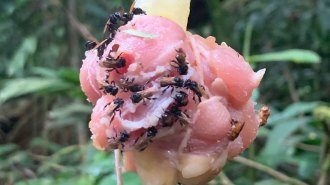 Animals
AnimalsGut bacteria let vulture bees eat rotting flesh without getting sick
Acid-producing bacteria in the gut of vulture bees let these “weirdos of the bee world” safely snack on animal carcasses.
-
 Life
LifeLight-colored feathers may help migrating birds stay cool on long flights
Analysis of over 20,000 illustrations of birds reveals that migrating birds generally tend to have lighter-colored feathers than birds that stay put.
-
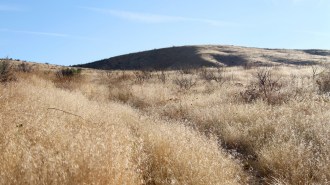 Plants
PlantsInvasive grasses are taking over the American West’s sea of sagebrush
Cheatgrass and other invasive plants are expanding rapidly in the western United States, putting more places at risk for wildfires.
-
 Paleontology
PaleontologyThis dinosaur had a weapon shaped like an Aztec war club on its tail
The flat and spiky tail club of a newly discovered ankylosaur was unique, even for this often weirdly armored group of dinosaurs.
-
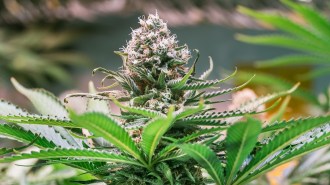 Chemistry
ChemistryHere’s the chemistry behind marijuana’s skunky scent
Newly ID’d sulfur compounds in cannabis flowers give the plant its telltale odor. One, prenylthiol, is what also gives “skunked beer” its funky flavor.
-
 Life
LifeFungi may be crucial to storing carbon in soil as the Earth warms
Fungi help soil-making bacteria churn out carbon compounds that are resilient to heat, keeping those compounds in the ground, a study suggests.
By Freda Kreier -
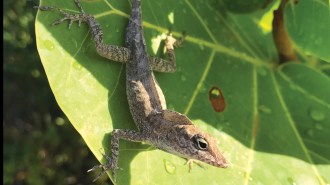 Animals
AnimalsA new book shows how animals are already coping with climate change
‘Hurricane Lizards and Plastic Squid’ takes a clear-eyed look at future of animal life.
-
 Microbes
MicrobesA sailor’s story captures the impact of rising serious fungal infections
Fungal infections are hard to diagnose, hard to treat and are on the rise. A young sailor is staying positive to navigate the challenges.
-
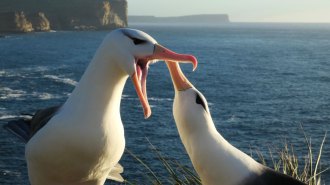 Life
LifeAlbatrosses divorce more often when ocean waters warm
In one part of the Falkland Islands, up to 8 percent of the famously faithful birds ditch partners in years when the ocean is warmer than average.
-
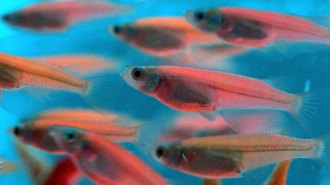 Life
Life‘Life as We Made It’ charts the past and future of genetic tinkering
A new book shatters illusions that human meddling with nature has only just begun.
-
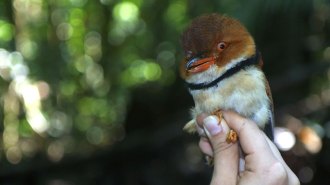 Animals
AnimalsClimate change may be shrinking tropical birds
Scientists had previously found that migratory birds are getting smaller as temperatures rise. Dozens of tropical, nonmigratory species are too.